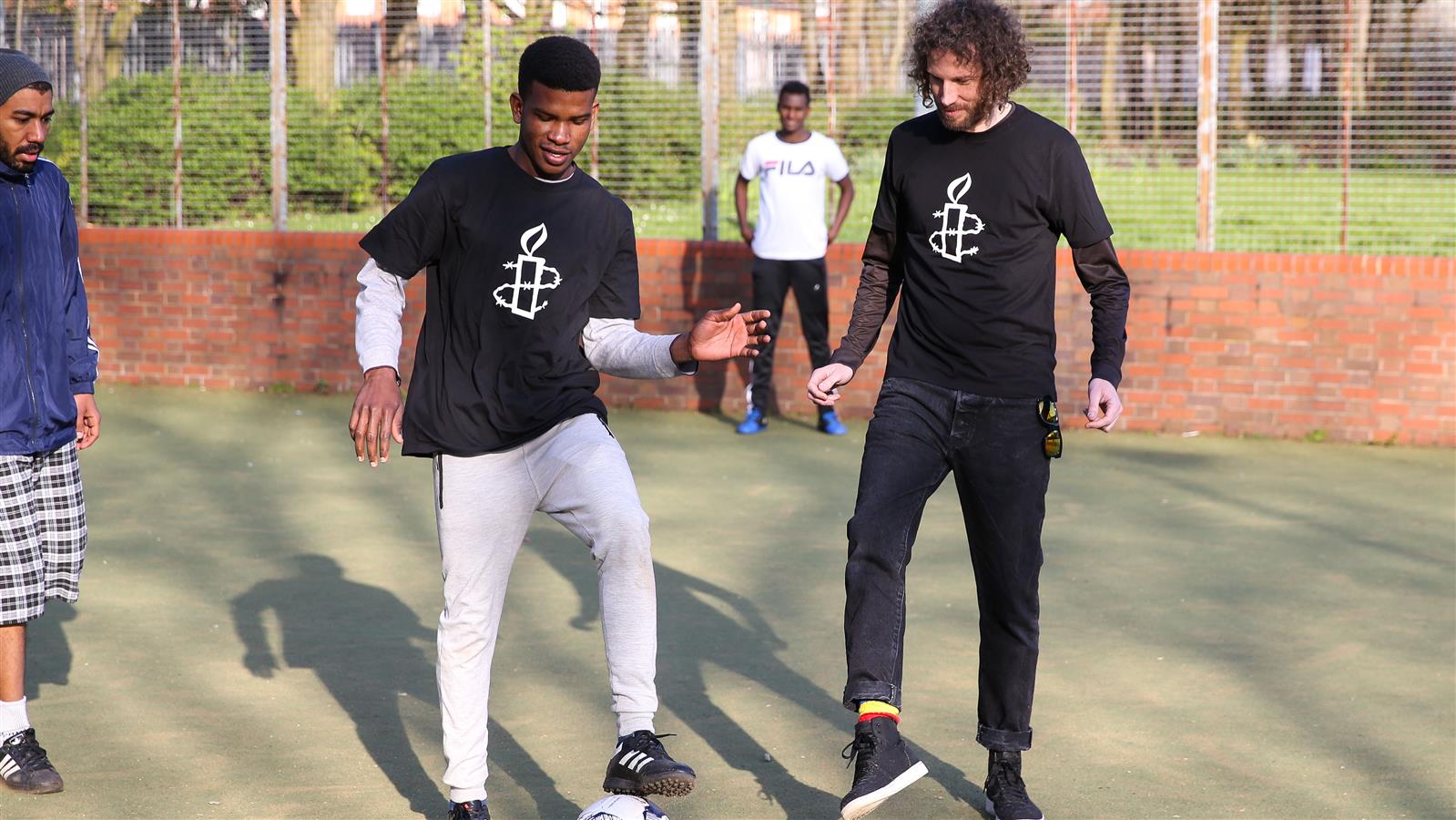Details of how the English Football League is lending their backing to Amnesty International
Eighty years ago this month, when General Franco ordered Nazi planes to drop 22 tons of explosives on Guernica during the Spanish Civil War - killing hundreds of civilians and leaving the historic Basque town in ruins - he committed an atrocity that would become an enduring symbol of the horrors of war, immortalised in Picasso’s painting Guernica.
Thousands fled the bombs raining down on the Basque Country, including nearly 4000 children who arrived in Southampton from Bilbao on a recommissioned cruise ship a few weeks later.
No-one knew it then, but six of the boys on the boat would become professional footballers in England, making them some of the first refugees to play in the English league.
Bolton Wanderers is proud to be one of many EFL clubs supporting Amnesty International’s Football Welcomes initiative this weekend, celebrating the contribution they made, and that refugees continue to make, to the game.
Here at the football club, we welcome people from all backgrounds be it watching a match or engaging with one our Community Trust programmes.
Our club is rightly proud to support the Football Welcomes campaign which not only recognises the valuable contribution that refugee footballers have made to the game but also highlights the important role football clubs play in the community to bring people closer together.
When news of what had happened in Guernica reached British newspapers, a public outcry convinced a reluctant Prime Minister - Stanley Baldwin – to finally offer the children to safe place to live and the chance to rebuild their lives in the UK.
It was the British public too who then welcomed the children into communities all over the country. To help raise funds for their upkeep, the girls would put on performances of Basque dance, and the boys played football matches against other local teams.
The practice served them well. Emilio Aldecoa, who was 14 when he boarded the SS Habana in Bilbao, turned out to be a skilful left-winger. In 1943 and aged 20, he was spotted by a scout for Wolverhampton Wanderers.
He proved to be an effective signing, finishing the season as Wolves’ top scorer, with 11 goals in 30 games. He moved to Coventry for two seasons in 1945, before returning to Spain to join Athletic Bilbao and then later, Barcelona.
He played once for Spain, before coming back to the UK as assistant manager of Birmingham City in 1960.
Meanwhile, five others were making their way into the English game – Jose Bilbao joined Aldecoa at Coventry for the 1945-46 season, and Sabin Barinaga signed as a forward with Southampton’s reserves, before returning to Spain and Real Madrid, scoring the first ever goal in the newly-built Bernabeu stadium in December 1947.
Raimundo Perez Lezama played in goal for Southampton, and Antonio Gallego took up the same position at Norwich. His brother Jose, played on the wing for Brentford, Southampton, Colchester United and Cambridge United.
Since then, refugee footballers have been making their mark on the English game. Among them are Coventry’s Gael Bigirimana, who scored the first goal in the Checkatrade Trophy final at Wembley earlier this month.
He, like Stoke City’s Saido Berahino, fled the civil war in Burundi in the 1990s. Bolton Wanderers’ former midfielder Fabrice Muamba escaped the conflict in the Democratic Republic of Congo, while former Colchester United, Newcastle United and Portsmouth striker Tresor LuaLua was born in Kinshasa, DRC, but moved to England at a young age.
They will all understand what those early Spanish players fleeing war went through to succeed in a new country and in football, while they continue to make their own significant contribution to the beautiful game.
The EFL is proud to support Football Welcomes – a part of Amnesty International’s I Welcome campaign for a better international response to the global refugee crisis.
The campaign encourages local communities to work together to create a more welcoming environment for people fleeing conflict and persecution.

